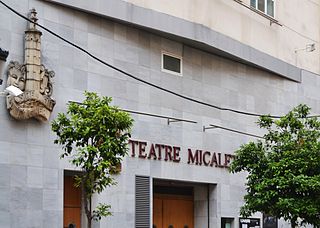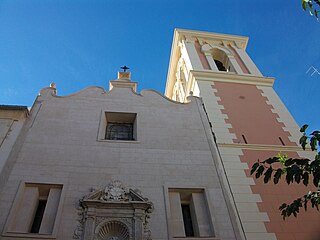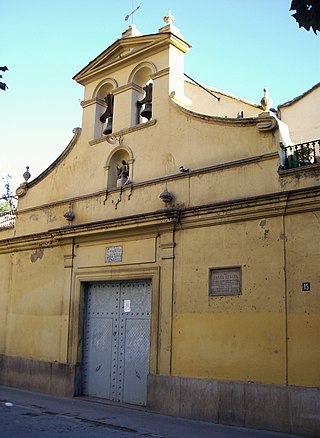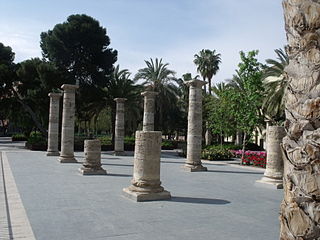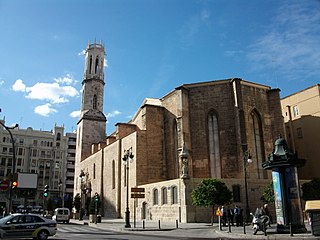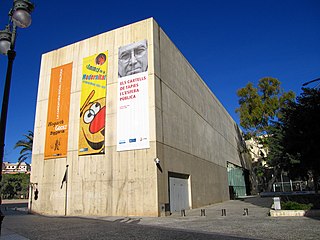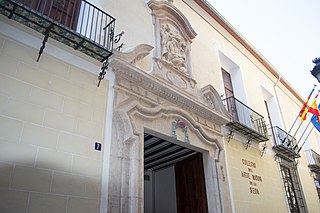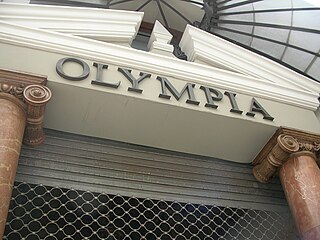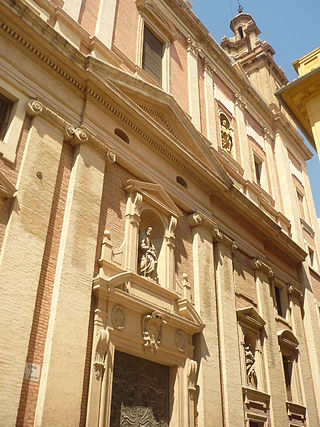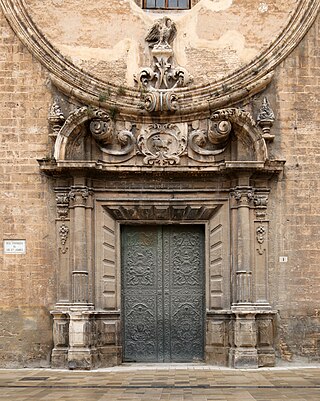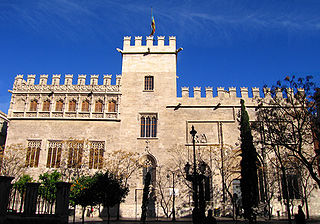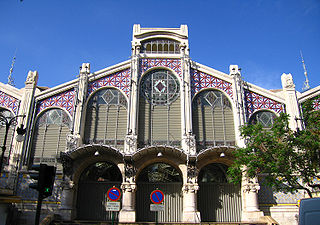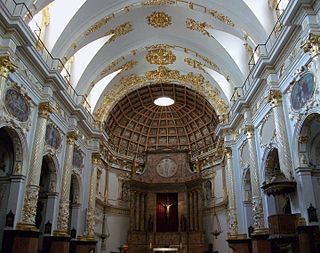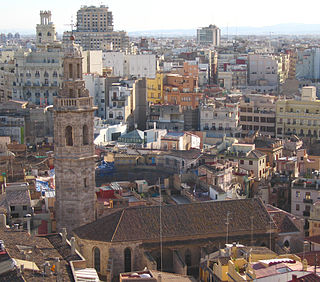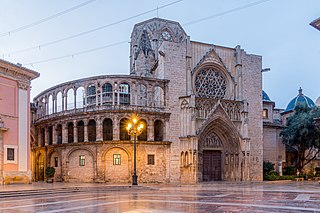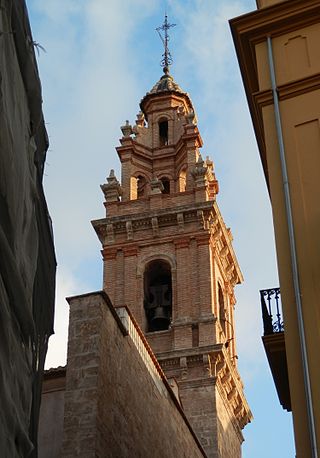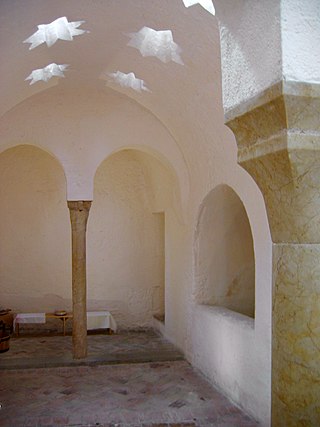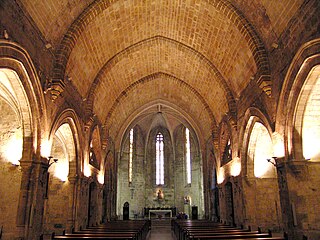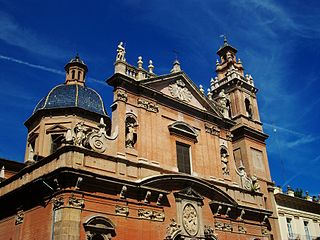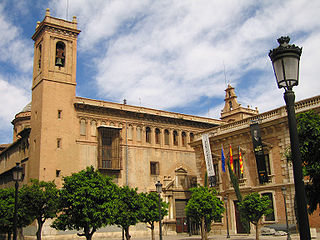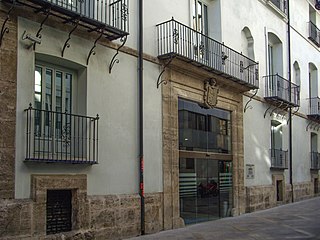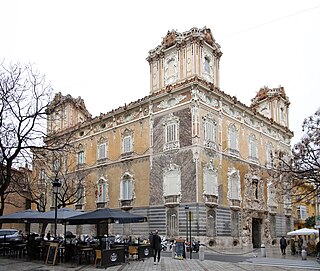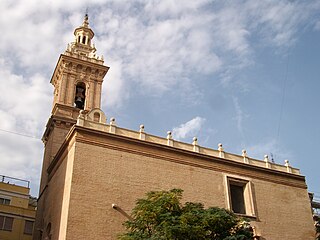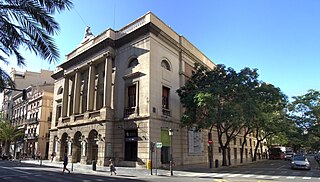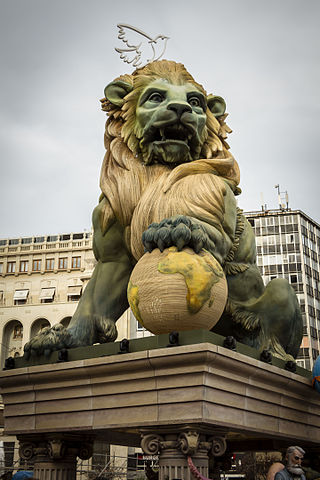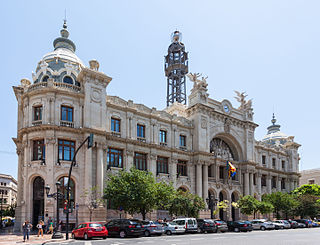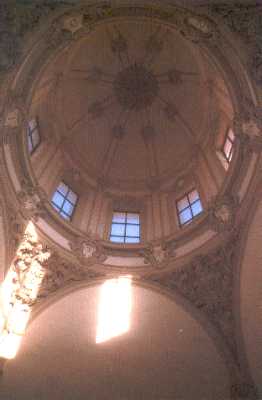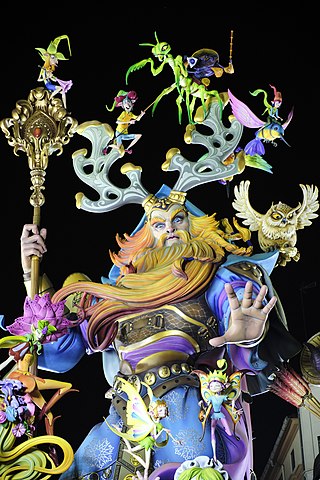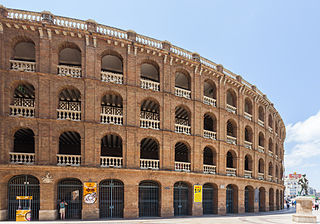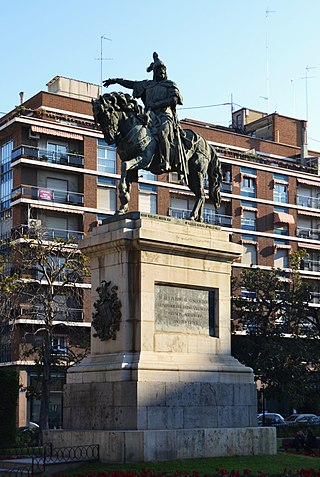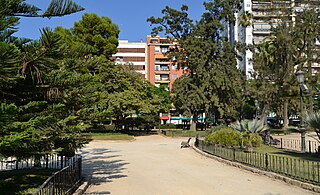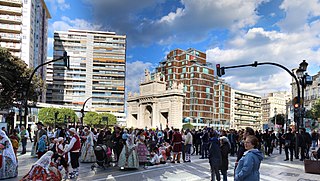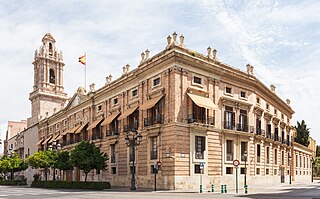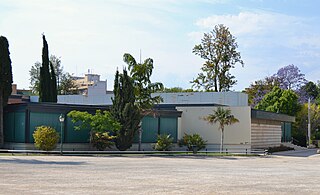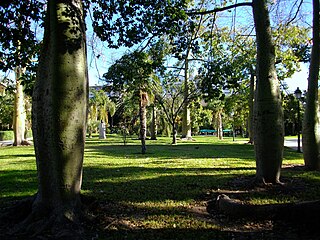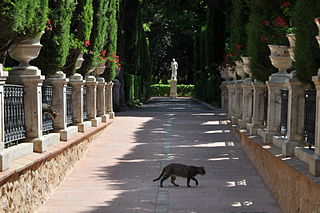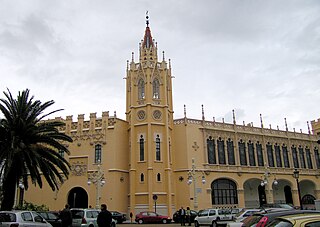Self-guided Sightseeing Tour #4 in Valencia, Spain
Legend
Guided Free Walking Tours
Book free guided walking tours in Valencia.
Guided Sightseeing Tours
Book guided sightseeing tours and activities in Valencia.
Tour Facts
10.5 km
254 m
Experience Valencia in Spain in a whole new way with our self-guided sightseeing tour. This site not only offers you practical information and insider tips, but also a rich variety of activities and sights you shouldn't miss. Whether you love art and culture, want to explore historical sites or simply want to experience the vibrant atmosphere of a lively city - you'll find everything you need for your personal adventure here.
Activities in ValenciaIndividual Sights in ValenciaSight 1: Teatre Micalet
The Micalet Theater is a theater hall in the city of Valencia, based in the El Micalet Choral Society. It has its own theatre company of recognised prestige, the Micalet Theatre Company.
Sight 2: Església del Pilar
The Church of the Pillar, or Church of Our Lady of the Pillar and Saint Lawrence is the church of the old Dominican convent of the same name, and is mainly what remains of it. It is located in the neighborhood of Velluters or El Pilar, the name it receives for the old convent. More precisely, it is located between Guillem de Castro Street, Maldonado Street and Plaza del Pilar, in the city of Valencia.
Sight 3: Ermita de Santa Llúcia
The hermitage of Santa Lucía, together with the grounds of the Old Hospital, was declared a National Historic-Artistic Monument in 1963 and an Asset of Cultural Interest in 2007, with the ministerial annotation number: R-I-51-0012195, and the date of annotation was November 28, 1963. It is located in the city of Valencia, on Calle del Hospital.
Sight 4: Parc de la Cultura
Hospital Park is a municipal garden in Valencia, in the Sant Francesc neighbourhood of Ciutat Vella. It occupies an area of just over 22,000 m² and is protected as an Asset of Cultural Interest (BIC) in the complex of the Hospital Vell and the Hermitage of Santa Llúcia, two historic buildings that are part of the park. In addition, we can also find the Valencian Museum of Illustration and Modernity (MuVIM).
Sight 5: Església de Sant Agustí i Santa Caterina
The parish church of Santa Catalina y San Agustín, located at 5 Mare de Deu de Gràcia street in the city of Valencia, Spain, is the church of the former convent of hermit friars of San Agustín who settled in Valencia in the thirteenth century.
Wikipedia: Iglesia de Santa Catalina y San Agustín (ES), Website
Sight 6: Museu Valencià de la Il·lustració i de la Modernitat
The Valencian Museum of Illustration and Modernity, also known as MuVIM, is a museum and temporary exhibition centre in the city of Valencia.
Wikipedia: Museu Valencià de la Il·lustració i de la Modernitat (CA), Website
Sight 7: Col·legi de l'Art Major de la Seda
The College of High Silk Art, located in Carrer de l'Hospital, núm. 7 of the city of Valencia, is a building built in the fifteenth century and was renovated in the sixteenth and seventeenth centuries in Baroque style. It has been declared an Asset of Cultural Interest.
Wikipedia: Col·legi de l'Art Major de la Seda (València) (CA)
Sight 8: Olympia
The Olympia building and theatre is located at number 44 Calle de San Vicente in the city of Valencia. It is a multi-family residential building built in 1915 by the architect Vicente Rodríguez Martín.
Sight 9: Iglesia de las Escuelas Pías
The church of the Pious Schools located on Carniceros Street in Valencia (Spain) was built in the eighteenth century in Baroque style and is a representative example of the architectural moment that the city of Valencia experienced in the last third of the eighteenth century.
Sight 10: Royal Parish of the St Johns
The Church of Santos Juanes or Sant Joan del Mercat is a Catholic church located in the Mercat neighborhood of the city of Valencia, Spain. The church is also denominated the Real Parroquia de los Santos Juanes or San Juan del Mercado due to its location adjacent to the city Central Market and facing the Llotja de la Seda building.
Sight 11: Silk Exchange
The Lonja de la Seda is a late Valencian Gothic-style civil building in Valencia, Spain. It is a principal tourist attraction in the city.
Sight 12: Central Market
Mercado Central or Mercat Central is a public market located across from the Llotja de la Seda and the Church of Santos Juanes in central Valencia, Spain. It is one of the main works of the Valencian Art Nouveau.
Sight 13: Església de Sant Martí
The church of San Martín, by San Martín Bisbe and San Antonio Abad, is one of the oldest in the city of Valencia, located at the beginning of San Vicente Street. Its origin can be found in the conquest of the city by James I, being in principle a mosque consecrated to Catholic worship.
Sight 14: Església de Santa Caterina
St. Catherine's Church is a Gothic-style Catholic church located in the city of Valencia, Spain at the southern end of Plaza de la Reina.
Sight 15: Valencia Cathedral
Valencia Cathedral, at greater length the Metropolitan Cathedral–Basilica of the Assumption of Our Lady of Valencia, also known as St Mary's Cathedral, is a Catholic church in Valencia, Spain.
Sight 16: Iglesia de San Esteban
St. Stephen's Church is a Catholic parish church located in the Plaça de Sant Esteve in the city of Valencia, Valencian Community, Spain.
Sight 17: Banys de l'Almirall
The Admiral's Baths is a building in the neighborhood of La Xerea, district of the Old Town of Valencia near the Palace of the Admiral of Aragon, of Islamic architecture, built in the thirteenth century and used until the twentieth. The Admiral's Bath is a humble bathing building that serves to learn how the daily life of the less favored classes of the city of Valencia worked. Sociability developed between women and men, sexes who met on different days or at different times. Bathing was an exercise in practical hygiene and allows us to learn about the social relations of each of the periods.
Sight 18: Iglesia de San Juan del Hospital
The church of San Juan del Hospital, Cistercian Gothic with some Romanesque elements, is the oldest in the city of Valencia. Located inside a block bounded between the streets of La Mar, Sant Cristòfol, del Miracle and Trinquet de Cavallers, in the district of La Xerea, within the district of Ciutat Vella, its name is due to the Order of Saint John of the Hospital or Order of Malta. Since 1943, it has been a historical-artistic monument and since 1966 it has been directed by Opus Dei.
Sight 19: Iglesia de Santo Tomas Apostol y San Felipe Neri
The Church of St. Thomas the Apostle and St. Philip Neri is a temple built in the eighteenth century in the Baroque style in the Plaza de San Vicente Ferrer in the city of Valencia. This church is also called the church of the Congregation, because it was part of the convent house erected by the Oratonian congregation of San Felipe Neri, to which the old parish church of San Tomas was later added. It has been declared an Asset of Cultural Interest.
Sight 20: Col·legi del Patriarca
The Royal College Seminary of Corpus Christi, also known as the College of the Patriarch, is a seminary founded in 1583 by Juan de Ribera, Archbishop and Viceroy of Valencia and Patriarch of Antioch, who three years later laid the first stone. It is located in the Plaza del Colegio del Patriarca, in the Xerea neighborhood of the city of Valencia.
Wikipedia: Reial Col·legi del Corpus Christi de València (CA)
Sight 21: Palau dels Boïl d'Arenós
The Boïl d'Arenós palace, also known as the House of the Lord of Bétera, located at Calle de los Llibrers, 2 in the Xerea neighborhood of Ciutat Vella in Valencia, is a building declared an asset of cultural interest, built on a corner plot owned by the Boïl family. It follows the typology of Valencian medieval palaces but refined and revised by later customs and traditions.
Sight 22: Palau del Marqués de Dos Aigües
The Palace of the Marquis of Dos Aguas is a Rococo nobility palace, historically important in the city. It is located in one of the most central locations in the city of Valencia (Spain). It is a stately mansion that was the property of the Marqueses of Dos Aguas and is currently owned by the Spanish State. It houses the González Martí National Museum of Ceramics and Decorative Arts.
Sight 23: Sant Joan de la Creu
The church of Sant Joan de la Creu was founded after the Christian conquest of the city, and was built on the site of a mosque. It is in the neighborhood of La Xerea, with the façade on Calle del Poeta Querol and between Vilaragut, Pròcida and Sant Andreu streets in the city of Valencia, Valencian Country.
Sight 24: Teatre Principal de València
The Teatro Principal de València, meaning Main Theatre of València, is a theatre in Valencia, Spain. It is located in downtown Carrer de les Barques, close from the City Hall, as well as the Northern Station and the adjacent Bullring.
Sight 25: Falla de l'Ajuntament
The Falla of the Plaza del Ayuntamiento de Valencia, also referred to as Falla Plaza del Caudillo or Falla del País Valencià, as the name of the square where it is planted has changed, is the falla that is planted by the Valencia City Council. Although, voluntarily, there are fallas that decide not to participate in the scoring system of the Junta Central Fallera, this is the only one that is always out of the competition. It is considered that the first falla is the one planted in 1942, with the So Quelo as the protagonist of the auction, although, as in most fallas, there are precedents of fallas planted in the nineteenth century.
Sight 26: Edificio de Correos
The Edificio de Correos or Palacio de correos y telégrafos de Valencia is a building located in the Plaza del Ayuntamiento. It was built between 1915 and 1922 and inaugurated in 1923, where the old fishermen's quarter was partly located, with Las Barcas Street as a close witness. It was subsidized by Maura's government for the modernization of postal services in Spain.
Sight 27: Capella de l'Antic Col·legi de Sant Pau
The chapel of the old San Pablo school in the city of Valencia (Spain) is located on Xàtiva Street and was built between the seventeenth and eighteenth centuries. It is located within the current Lluís Vives Institute.
Sight 28: Falla del Convent de Jerusalem - Matemàtic Marçal
The Falla nº 12 Convent Jerusalem - Matemàtic Marçal is a falla in the city of Valencia, located in the streets of the same name.
Wikipedia: Falla del Convent de Jerusalem - Matemàtic Marçal (CA)
Sight 29: Valencia Bullring
The Plaza de Toros de Valencia is a bullring in Valencia, in the Valencian Community in Spain where the Fallas bullfighting fair is held.
Sight 30: Museo Taurino
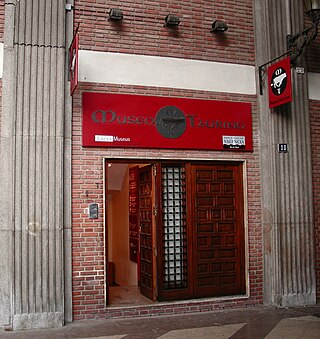
The Bullfighting Museum of Valencia is located in the Doctor Serra passage number 10 in Valencia, (Spain), in a side passage of the bullring of Valencia, in the center of the city.
Sight 31: Jaume I
Jaume I or the Monument to James I is an instance of public art in Valencia, Spain. The monument is topped by an equestrian bronze statue representing James I of Aragon, conqueror of Valencia in 1238 and founder of the Kingdom of Valencia.
Sight 32: Jardins de la Glorieta
The Glorieta Gardens, known simply as the Glorieta, are gardens in the city of Valencia, located in the neighborhood of La Xerea, in the district of Ciutat Vella. It is bounded by the streets of General Tovar, General Palanca, by the Plaza de la Puerta del Mar to the east and to the south by the Plaza de Alfonso the Magnanimous and the Palace of Justice.
Sight 33: Porta de la Mar
Get Ticket*The Plaza de la Puerta de la Mar is a square in the Old Town of Valencia that is located at the northern end of Calle de Colom, between the neighborhoods of Sant Francesc, La Xerea and Pla del Remei.
Sight 34: Convent de Sant Doménec
The Convent of Santo Domingo was a convent of the Dominican Order in the city of Valencia, Spain. Construction of the church began on land granted by King James I of Aragon in 1239, but it was subsequently replaced by a larger structure in 1250. The building went through renovations and expansions during different periods in history, hence it is home to Renaissance, Neoclassical, Valencian Gothic and Baroque styles of architecture. It was classified as a Bien de Interés Cultural in 1931, and is now used as a Spanish Army headquarters.
Sight 35: Museu de Ciències Naturals
The Natural Science Museum of Valencia (Spain) is located at Jardines del Real.
Sight 36: Jardins del Real
The Jardines del Real, also called Jardines de Viveros, are an urban public park in Spain located in the city of Valencia.
Sight 37: Jardí de Monforte
The Monforte Garden, also known as Romero's orchard, is an ornamental garden in the city of Valencia, located in the Exhibition district, between Calle de Montfort, Plaza de la Legion Española and the Quirón clinic.
Sight 38: Palau de l'Exposició
The exhibition palace is a municipal building in the city of Valencia, located on Galicia Street no. 1. It was built in 1908 by the architect Francesc Mora i Berenguer following the Valencian modernist style and the neo -Gothic.
Share
Disclaimer Please be aware of your surroundings and do not enter private property. We are not liable for any damages that occur during the tours.
GPX-Download For navigation apps and GPS devices you can download the tour as a GPX file.
